A state of war only serves as an excuse for domestic tyranny. —Aleksandr Solzhenitsyn


A state of war only serves as an excuse for domestic tyranny. —Aleksandr Solzhenitsyn
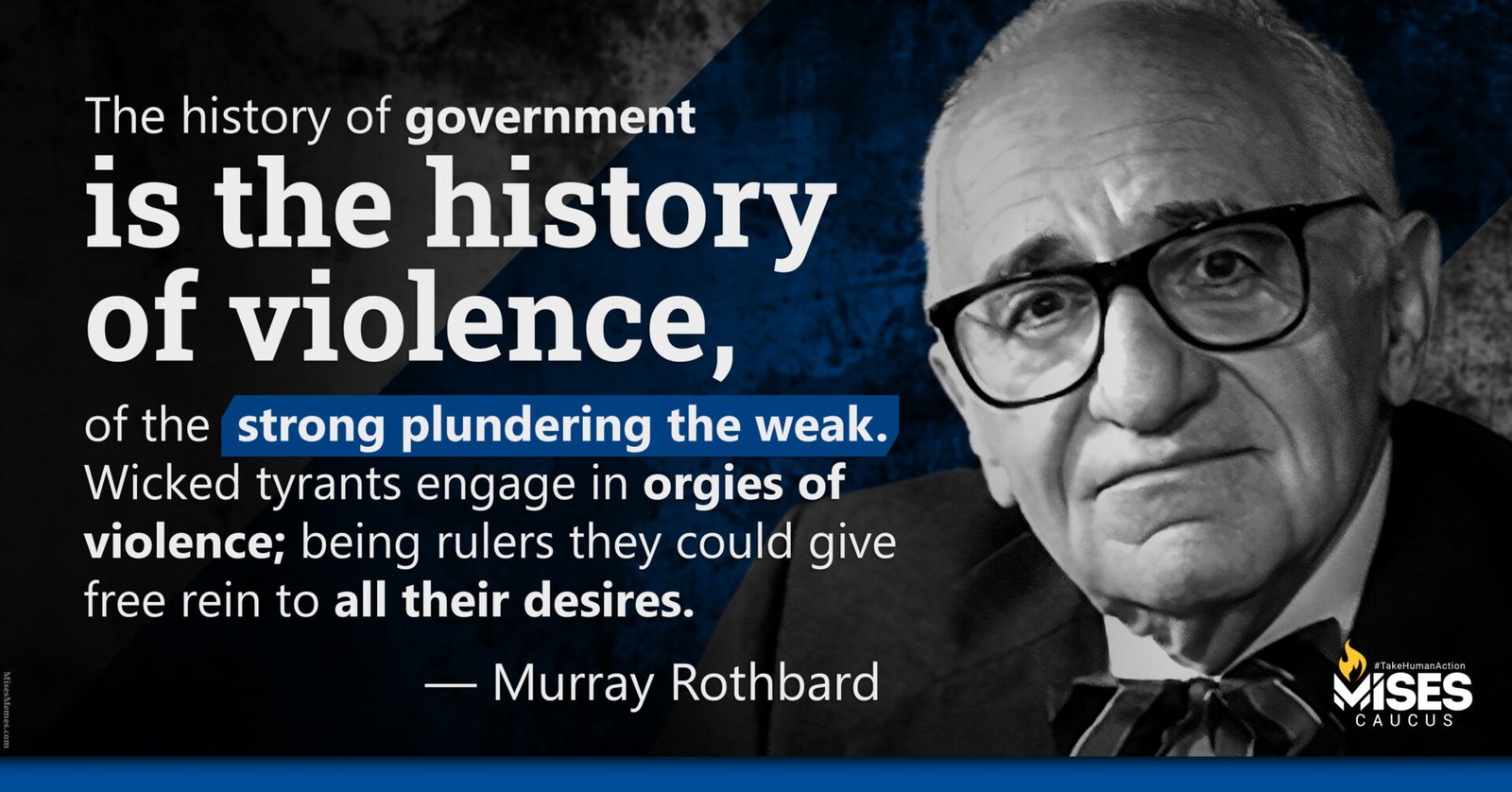
The history of government is the history of violence, of the strong plundering the weak. Wicked tyrants engage in orgies of violence; being rulers they could give free rein to all their desires. —Murray Rothbard

The truth will not be an easy path. Perhaps, but it is the easiest among those that lie before us. Not an easy choice for the body, but the only one for the soul. No, not an easy path, but then we already have among us people, who have for years lived by the truth. And so: We need not be the first to set out on this path, Ours is but to join! The more of us set out together, the thicker our ranks, the easier and shorter will this path be for us all! If we become thousands—they will not cope, they will be unable to touch us. If we will grow to tens of thousands—we will not recognize our country! —Aleksandr Solzhenitsyn
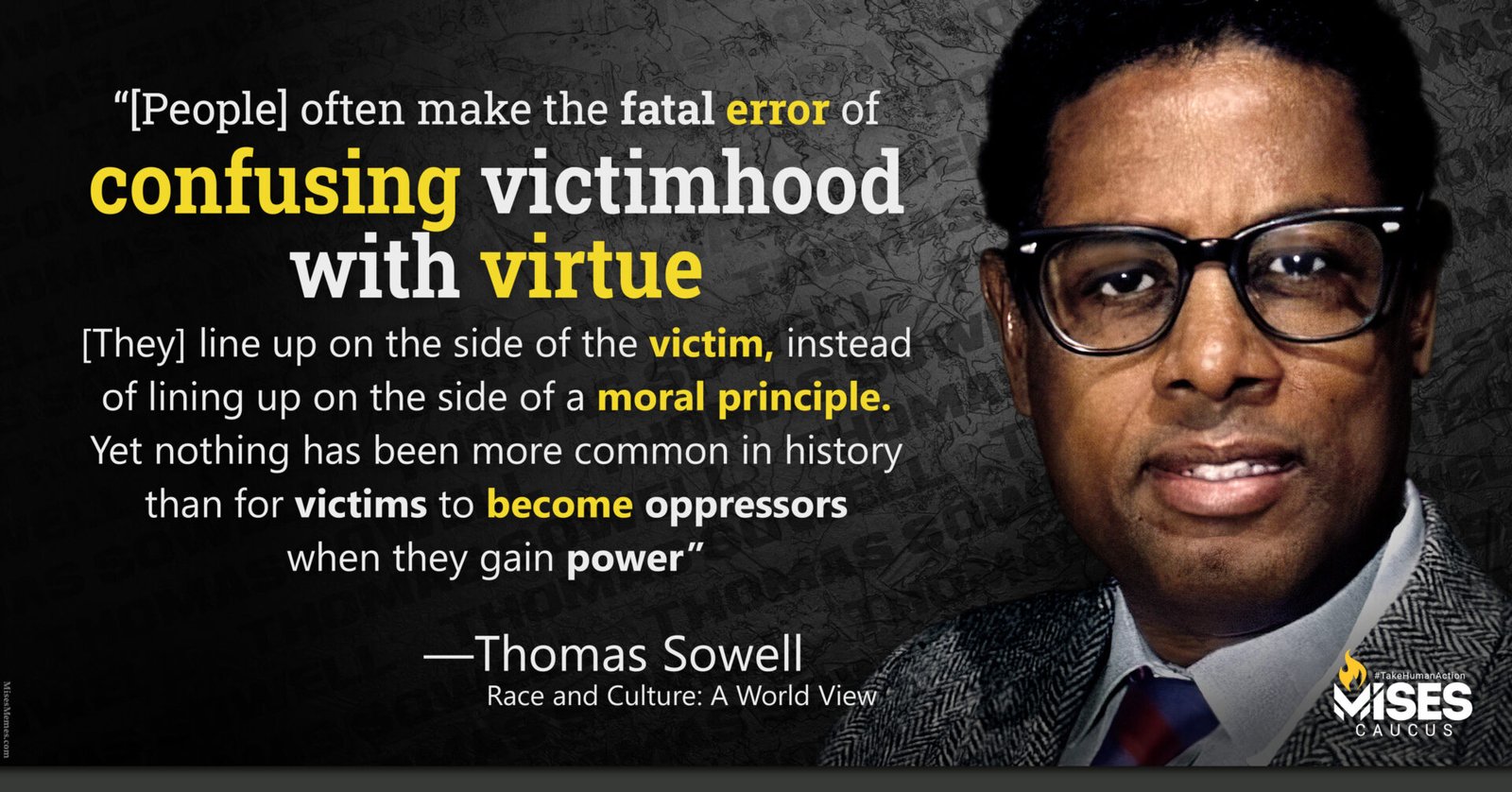
“[People] often make the fatal error of confusing victimhood with virtue
[They] line up on the side of the victim, instead of lining up on the side of a moral principle. Yet nothing has been more common in history than for victims to become oppressors when they gain power” —Thomas Sowell, Race and Culture: A World View
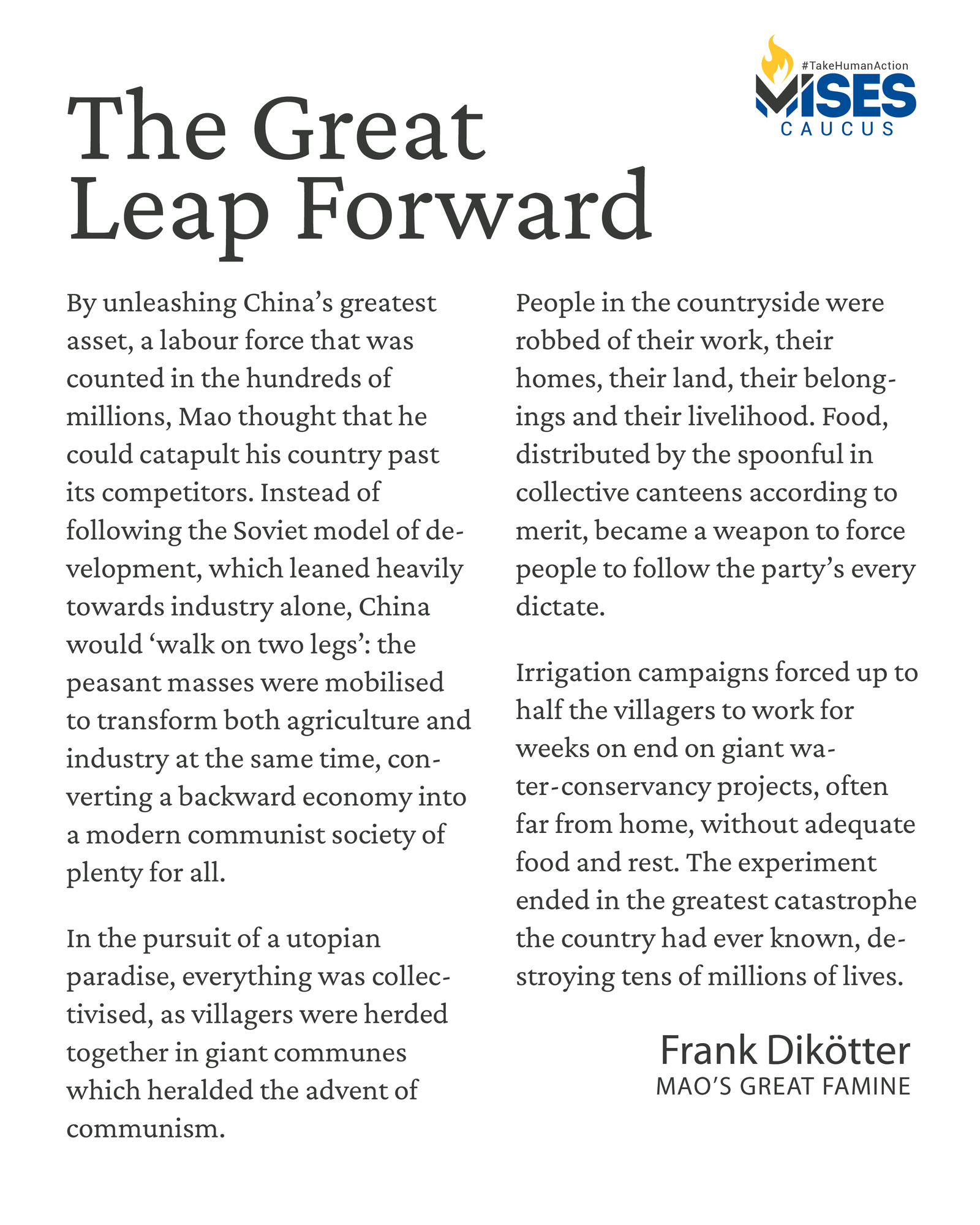
By unleashing China’s greatest asset, a labour force that was counted in the hundreds of millions, Mao thought that he could catapult his country past its competitors. Instead of following the Soviet model of development, which leaned heavily towards industry alone, China would ‘walk on two legs’: the peasant masses were mobilised to transform both agriculture and industry at the same time, converting a backward economy into a modern communist society of plenty for all.
In the pursuit of a utopian paradise, everything was collectivised, as villagers were herded together in giant communes which heralded the advent of communism.
People in the countryside were robbed of their work, their homes, their land, their belongings and their livelihood. Food, distributed by the spoonful in collective canteens according to merit, became a weapon to force people to follow the party’s every dictate.
Irrigation campaigns forced up to half the villagers to work for weeks on end on giant water-conservancy projects, often far from home, without adequate food and rest. The experiment ended in the greatest catastrophe the country had ever known, destroying tens of millions of lives.
—Frank Dikötter, Mao’s Great Famine

This is a story of Zhao Xiaobai, then aged eleven, a soft-spoken woman with sad eyes. A few years before the Great Leap Forward her family left their native village in Henan to join a migration programme. Her father was made to break ice in the mountains but died of hunger in 1959. Her mother was too ill to work.
One of the local cadres came to the house, banging on the door to announce that slackers would not be fed. Another local bully came at night, pestering her mother for sexual favours. In the end, exhausted, her mother gave up and committed suicide.
Surrounded by strangers speaking an alien dialect, Zhao and her sister aged six ended up living with an uncle. ‘He was reasonable towards me, because I was old enough to go out and work. But he was not nice to my sister.
One day, as it was freezing, my sister came home empty-handed. So he beat her on the head, and she bled pretty badly.’
To protect her sister from her uncle’s abuse, Zhao took the six-year-old with her as she went to work like an adult, digging canals and ploughing fields. Here too she was unsafe. ‘Once, as I was working, I heard my little sister crying, and I saw somebody hurting her. Somebody was using sand balls to hit my sister, and she was surrounded by clumps of sand. Her eyes were covered in grit, and she just cried and cried.’
When asked how she had become the woman she is now, Zhao Xiaobai answered without hesitation: ‘Through suffering.’
—Frank Dikötter, Mao’s Great Famine

At what exact point, should one resist? When one’s belt is taken away? When one is ordered to face into a corner? When one crosses the threshold of one’s home?
How we burned in the camps later, thinking: What would things have been like if every Security operative, when he went out at night to make an arrest, had been uncertain whether he would return alive and had to say good-bye to his family? Or if during periods of mass arrests, as for example in Leningrad, when they arrested a quarter of the entire city, people had not simply sat there in their lairs, paling with terror at every bang of the downstairs door and at every step on the staircase, but had understood they had nothing left to lose and had boldly set up in the downstairs hall an ambush of half a dozen people with axes, hammers, pokers, or whatever else was at hand?
The Organs would very quickly have suffered a shortage of officers and transport and, notwithstanding all of Stalin’s thirst, the cursed machine would have ground to a halt!
If … if … We didn’t love freedom enough. We purely and simply deserved everything that happened afterward.
—Aleksandr Solzhenitsyn, The Gulag Archipelago
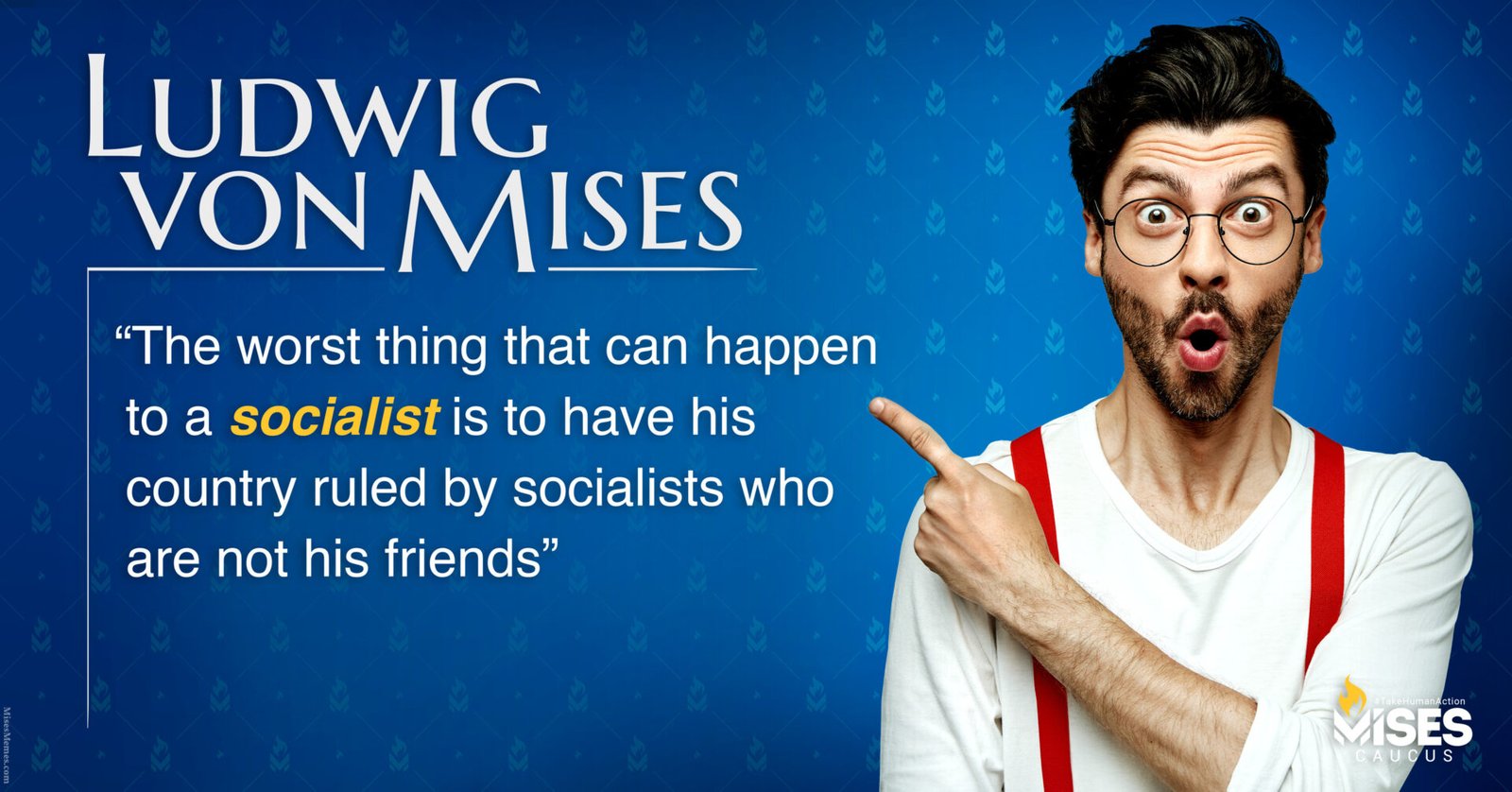
The worst thing that can happen to a socialist is to have his country ruled by socialists who are not his friends. —Ludwig von Mises

If you are up for life, if you defend life, you cannot admire murderers. If you are up for defending private property, you cannot admire thieves. If you are up for liberty you cannot admire dictators. —Gloria Alvarez
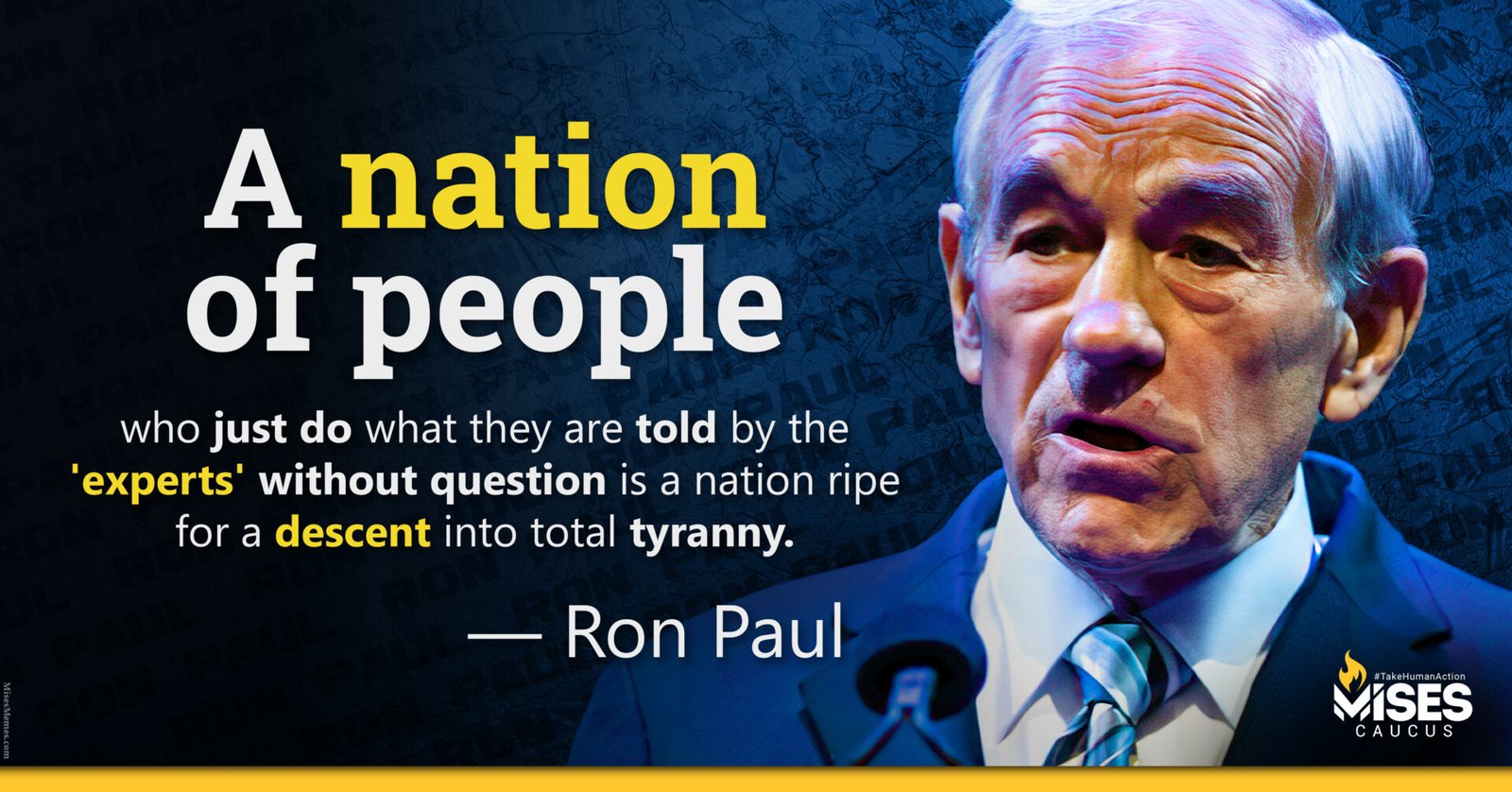
A nation of people who just do what they are told by the ‘experts’ without question is a nation ripe for a descent into total tyranny. —Ron Paul